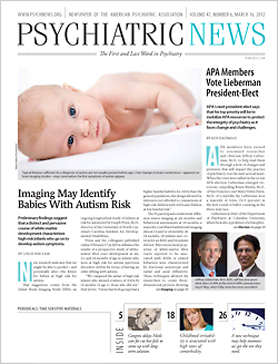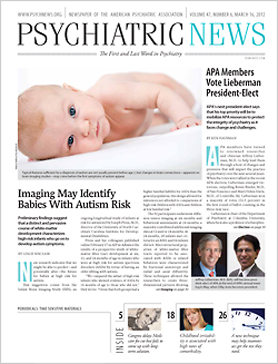A disturbing but provocative study appeared February 6 in the Archives of General Psychiatry.
British researchers have found in a large cohort of middle-aged people over a 10-year period that not only does cognition decline in general, but that declines are particularly marked in male smokers.
Some evidence suggesting that smoking might be a risk factor for dementia prompted Severene Sabia, Ph.D., a research associate at University College London, and her colleagues to conduct this study. It was based on more than 7,000 middle-aged employees of the British Civil Service who represented a wide socioeconomic swath.
The subjects were cognitively assessed when they were, on average, age 56 and then periodically over the subsequent decade. The cognitive tests assessed memory, vocabulary, and executive function (measures of reasoning and verbal fluency). The subjects’ smoking status was evaluated over the entire study period as well. The researchers then looked to see how the subjects’ cognition changed over the years and whether there were links between subjects’ cognitive performances over that period and whether they smoked, even when possibly confounding factors such as sociodemographic variables, health measures, and health behaviors were considered.
Both men and women were found to experience cognitive decline over the study period. But while the decline was no worse in female smokers than in female nonsmokers, it was significantly worse in male smokers than in male nonsmokers. For instance, a 50-year-old male smoker showed a cognitive decline similar to that of a 60-year-old male never-smoker. Furthermore, the impact was greater on executive function than on memory or vocabulary.
The reason why female smokers showed no worse cognitive decline than female nonsmokers isn’t clear. But it may be because the male smokers in the study were heavier smokers than the female smokers both in terms of pack-years and duration of smoking, Sabia and her colleagues suggested.
The study did, however, produce one positive result as far as male smoking was concerned: ex-smokers with at least a 10-year cessation period experienced no worse cognitive decline than did male nonsmokers.
“This is a well-executed study,” Helen Kales, M.D., a geriatric psychiatrist at the University of Michigan and a scientist at the VA Ann Arbor Healthcare System, told Psychiatric News. “Key strengths include a relatively large sample, a long follow-up period, and use of a statistical method (joint modeling) designed to take into account the potential bias in estimates of cognitive decline due to selection effects like mortality and dropout. These selection effects are problematic for studies of smoking’s impact given that smoking is associated with both mortality and dropout.”
As far as the study’s public-health implications are concerned, Kales said, “We would encourage smokers of any age to quit smoking for a multitude of health reasons, but the biggest impact might be for those in middle age in terms of the results on cognitive decline.”
Kales noted, however, that the study data do not point to a link between smoking and dementia. “Such a conclusion would be premature [because] the authors were not able to ascertain dementia cases,” she said.
The study was funded by the British Medical Research Council, the U.S. National Institutes of Health, the European Science Foundation, the Academy of Finland, and the Bupa Foundation.


